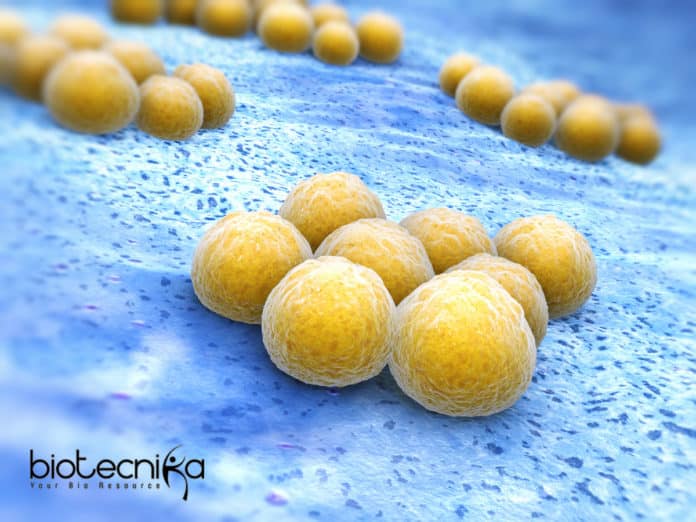New Antibiotic Resistance Test Could Show Results In 45 Minutes.
A diagnostic test is now being developed by researchers that would cut the time taken to show resistance to antibiotics from “up to 2 days” to “less than 45 mins”.
In a research published in the journal Biosensors and Bioelectronics, the University of Strathclyde‘s research team demonstrated the low-cost, a rapid diagnostic system that could show antibiotic resistance.
To prove this system could prescribe the correct antibiotic to a patient for an infection more quickly, the researchers examined the difference in growth profiles between staphylococcus aureus & MRSA.
While the Staphylococcus aureus is a common hospital-acquired bacterial infection sensitive to antibiotics, MRSA strain can be harder to treat.
Both of the strains were placed on to electrodes covered in a special hydrogel deposit & the susceptible strain couldn’t grow when the sensor was seeded with an antibiotic.
The study’s lead author, Dr. Stuart Hannah, said there is a small difference between what makes an organism susceptible to an antibiotic & what makes it resistant.
He added that in real terms, his team was able to distinguish between the 2 strains in less than 45 mins, which is a significant improvement
on the current gold standard of up to 2 days.He further explained that the technology uses a low cost, commercially available sensor that can act like a mini culture dish which deals with any kind of clinical sample.
He continued, the system is modified with a special gel deposit so that it is possible to identify the difference between susceptible & resistant forms of common bacteria.
The rapid result detection means we could pinpoint bacterial versus viral infections straight away and we would be able to start working on a correct treatment more quickly for the individual’s affected, which is very important for certain infections.
“Antibiotic-resistance is less likely to develop if you give a narrower spectrum antibiotic.”
It is now hoped this new test could be used by pharmacists & other points of care, as well as being developed for commercial uses.
Dr. Hannah suggested that all the materials used “can be mass-manufactured, which means that it is very cheap to produce a working test.
Hannah added, with the right commercial backing, a future device could be used at a GPs’ surgery, where they can effectively take a blood sample and to do the test & have results within an hour, rather than sending samples to a lab and have to wait for a positive result.
Hannah explained the system could also have a place on intensive care wards. When for the first time someone is ill they are quite rightly given a broad-spectrum antibiotic & also they have to wait for 12 to72 hours for a result from the hospital laboratory.
Hannah said he hopes that the tests can be located at the bedside & that it will allow doctors to switch from a broad-spectrum of drugs to the right medication quite quickly.
The consultant anesthetist on the project, Dr. David Alcorn from the Royal Alexandra Hospital in Paisley, said, being able to quickly diagnose infection is a great enough ability but to be able to also detect antimicrobial resistance within such a short period of time i.e, 45mins, could prove to be a wonderful tool.
He said this means diagnostic information could be provided for clinicians across intensive care units, operating theatres & emergency departments, to enable them to give the right drug and medication at the right time.
And there is also scope for this to have an enormous impact on general practice and day-to-day healthcare, he added.






























